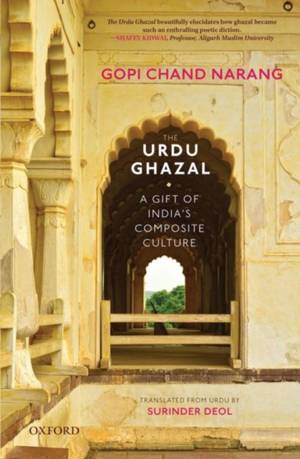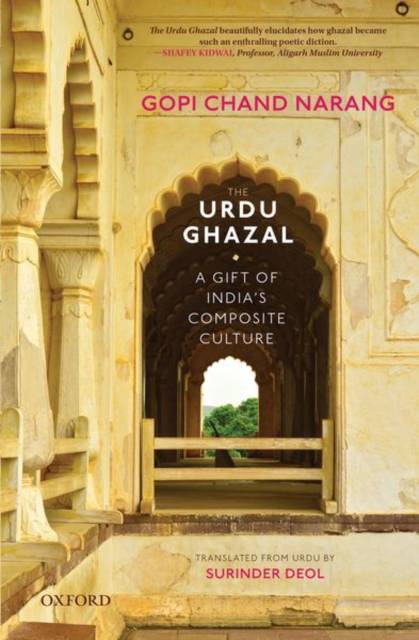
Bedankt voor het vertrouwen het afgelopen jaar! Om jou te bedanken bieden we GRATIS verzending (in België) aan op alles gedurende de hele maand januari.
- Afhalen na 1 uur in een winkel met voorraad
- In januari gratis thuislevering in België
- Ruim aanbod met 7 miljoen producten
Bedankt voor het vertrouwen het afgelopen jaar! Om jou te bedanken bieden we GRATIS verzending (in België) aan op alles gedurende de hele maand januari.
- Afhalen na 1 uur in een winkel met voorraad
- In januari gratis thuislevering in België
- Ruim aanbod met 7 miljoen producten
Zoeken
The Urdu Ghazal
A Gift of India's Composite Culture
Gopi Chand Narang, Surinder Deol
Hardcover | Engels, Urdu
€ 112,95
+ 225 punten
Omschrijving
The book presents unique flowering of Urdu ghazal as a by-product of India's composite culture that evolved from intermixing of Indian and alien value systems. This never before narrated story of the evolution of Urdu ghazal is documented in eight chapters divided into three parts. It explores a variety of influences, including Sufism, Bhakti movement, and infusion of Rekhta and Persian languages and culture. The book explains classical ghazal forms that blossomed from the seeds sown by Amir Khusrau in the fourteenth century to great heights of literary excellence achieved during the next three hundred years, notably in the works of great poets like Mir and Ghalib. Different socio-political and cultural demands of changing times are expounded towards the end, primarily showing how ghazal provided new creative models to deal with literary movements like progressivism, modernism, and postmodernism. It is a work of painstaking research conducted by eminent Urdu scholar and author Professor Gopi Chand Narang over a very long period. The book includes sample works of thematically related poets. The reader will especially appreciate extended coverage of pioneering innovators of the twentieth-century like Firaq Gorakhpuri and Faiz Ahmed Faiz, and postmodern poets like Gulzar and Javed Akhtar.
Specificaties
Betrokkenen
- Auteur(s):
- Vertaler(s):
- Uitgeverij:
Inhoud
- Aantal bladzijden:
- 544
- Taal:
- Engels, Urdu
Eigenschappen
- Productcode (EAN):
- 9780190120795
- Verschijningsdatum:
- 16/06/2020
- Uitvoering:
- Hardcover
- Formaat:
- Genaaid
- Afmetingen:
- 145 mm x 224 mm
- Gewicht:
- 657 g

Alleen bij Standaard Boekhandel
+ 225 punten op je klantenkaart van Standaard Boekhandel
Beoordelingen
We publiceren alleen reviews die voldoen aan de voorwaarden voor reviews. Bekijk onze voorwaarden voor reviews.









